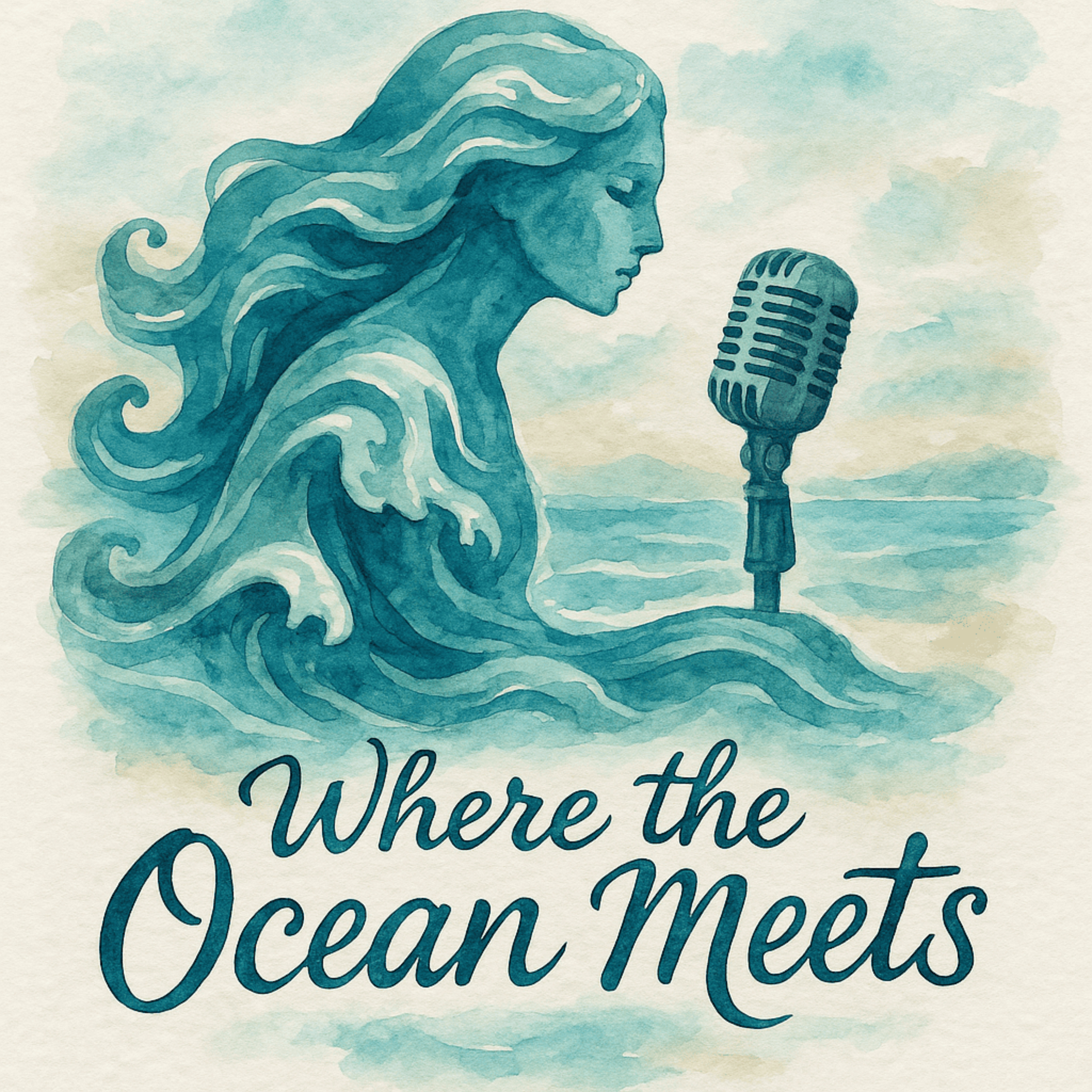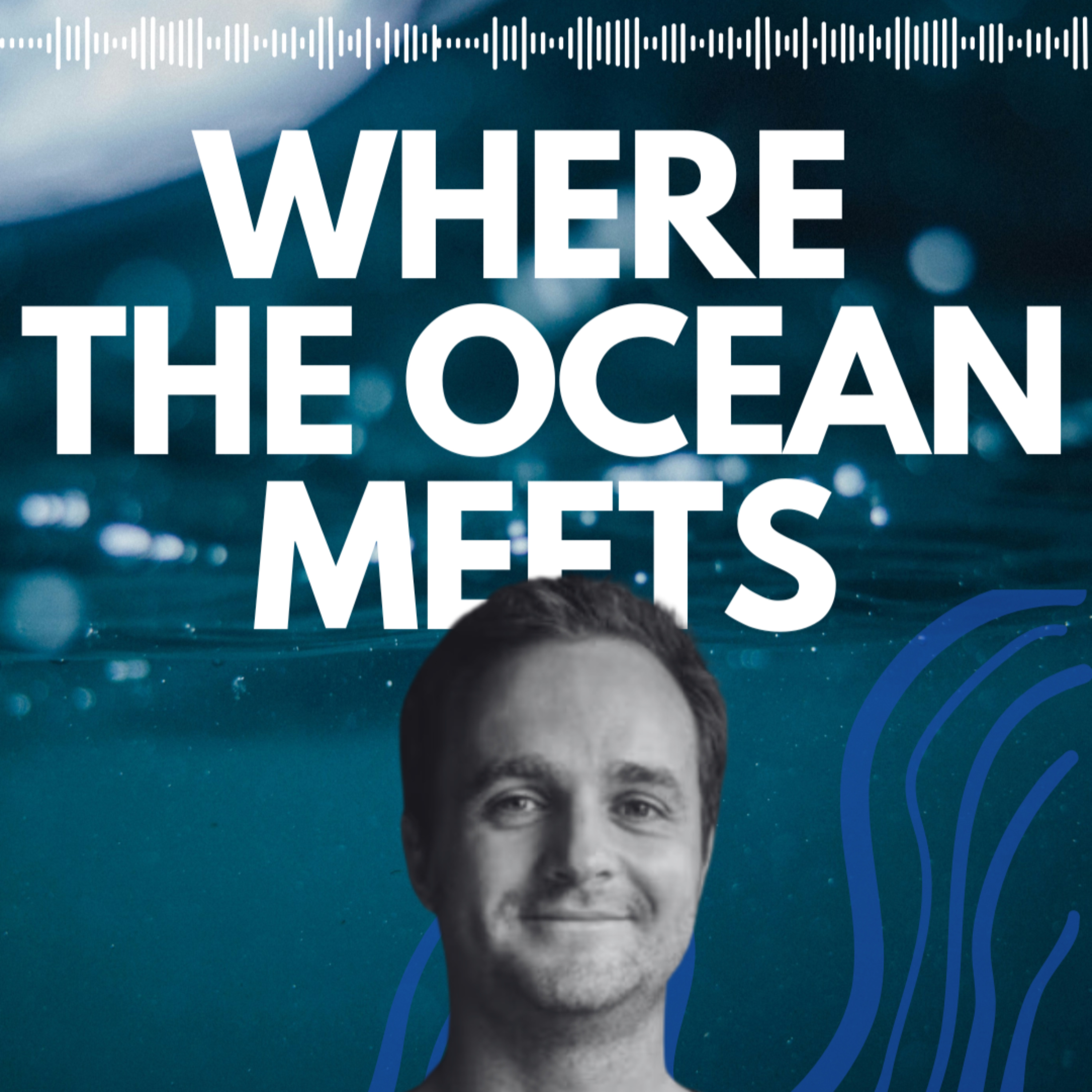Where The Ocean Meets:

Where The Ocean Meets:
Podcast Description
Since I started CleanHub to prevent ocean plastic, I've met fascinating scientists, activists, and entrepreneurs working toward healthier oceans.
This podcast is for ocean lovers and those who want to become one. It's for those who want to learn about marine protection. Through these conversations, I explore the people behind the solutions, what drives them, and how their work creates healthier oceans.
Join me for inspiring stories of hope beyond doom and gloom.
Podcast Insights
Content Themes
Centers around themes of marine protection, technology for conservation, and personal stories of changemakers, with episodes discussing topics such as the integration of AI in ocean data management and innovative coral restoration techniques, and highlighting individual journeys from different backgrounds in ocean advocacy.

My biggest life regret? Studying business instead of marine biology. 💔 The ocean fills me with happiness, wonder, and fascination—yet I know so little about it.
By day, I fight ocean plastic pollution to make amends. By night, I create this show. ☯️
This podcast is my journey, as an amateur ocean enthusiast, to explore the ocean as an ecosystem, playground, and economic powerhouse—no expertise required to dive in (though experts might enjoy hearing from their colleagues).
If you’re curious about the force covering 70% of our planet and sustaining life, join me—listen and follow now. 🌊
Henk Rogers is best known as the man who helped bring Tetris to the world,but today, he’s focused on a much bigger challenge: climate change and the global energy transition.
In this powerful conversation, Henk Rogers explains why renewable energy is already cheaper, why islands may lead the world, and why determination matters more than hope.
We explore how island nations are becoming real-world laboratories for renewable energy, why fossil fuels are no longer economically viable, and how one life-altering moment pushed Henk to dedicate his life to systemic change.
This isn’t a conversation about doom or denial, it’s about solutions that already work, leadership, and why the fight against climate change may be closer to victory than most people realize.
What You’ll Learn in This Episode
Why island nations are uniquely positioned to lead the renewable energy revolution
How clean energy is already cheaper than fossil fuels
The hidden political and economic barriers slowing climate action
Why Henk says, “I don’t have hope — I have determination”
How systems thinking (and even video games) shape real-world problem solving
Why climate change may be humanity’s “final boss” and how we can win
Why This Conversation Matters
Island communities face the highest energy costs, the greatest climate risks, and the least margin for delay. Yet, they’re proving what’s possible for the rest of the world.
If renewable energy can work for islands, it can work anywhere.
About the Guest
Henk Rogers is an entrepreneur, environmental advocate, and the visionary who helped popularize Tetris globally. Today, he works on accelerating renewable energy adoption, especially in island nations, through long-term infrastructure and systems-level solutions.
Join the Conversation
What stood out to you most from this conversation?
Do you believe island nations could lead the global energy transition?
Drop your thoughts in the comments.

Disclaimer
This podcast’s information is provided for general reference and was obtained from publicly accessible sources. The Podcast Collaborative neither produces nor verifies the content, accuracy, or suitability of this podcast. Views and opinions belong solely to the podcast creators and guests.
For a complete disclaimer, please see our Full Disclaimer on the archive page. The Podcast Collaborative bears no responsibility for the podcast’s themes, language, or overall content. Listener discretion is advised. Read our Terms of Use and Privacy Policy for more details.